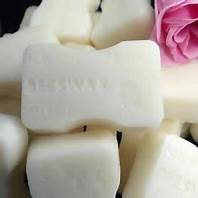Cosmetics Unmasked - Introduction 2











Cosmetics Unmasked - Introduction 2
Meaningless Advertising before using a cosmetic or toiletry product, you may want to know three things:
What are the ingredients?
Why are they used?
If you cannot glean this information from the labels , then you are at the mercy of the advertisers, to inform you about the products. But the information on cosmetics ingredients is usually vague, often incomplete, and uninformative. Cosmetic manufacturers frequently disguise the true nature of the ingredients by describing their properties with meaningless phrases, such as "reveals fresher younger-looking skin.
" What this actually means is that keratolytic chemicals dissolve the protective, outer layer of the skin cells . This exposes the more sensitive, deeper layers of your skin, and this increases the risk of damage by ultraviolet radiation and the absorption of chemical ingredients that were never meant to penetrate your skin.
Is It Safe?
There is a widely held belief that products such as cosmetics would not be readily available to the consumer unless they were safe. The manufacturers and advertisers of the products reinforce this belief by demonstrating their "nourishing ," "revitalizing ," or "natural " properties . But just how safe are these products? And can they really help maintain an unblemished , youthful complexion, as the advertisers would have us believe?
In 1994 the American FDA carried out a survey into allergies caused by cosmetics and toiletries. Nearly one in four people questioned claimed to have suffered an allergic reaction as a result of using a cosmetic or toiletry, including make-up, foundations, and moisturizers.
On October 20, 1997, representatives of the hairdressing profession told the EU Commission that hairdressers' health was being impaired because of the large amounts of cosmetic products they were exposed to. They asked the commission whether it had looked into this problem of if it intended to do so.
But are the manufacturers ' safety tests adequate? Do the new non-animal tests give reliable results, and is a product really safe to use if large or long-term exposure to the chemical damages the health of the professionals who work with them?
Is It Dangerous
this all paints a fairly bleak picture, but it is not the intention of this web site to make the bathroom cabinet look like a mine field. In fact, the authors discovered much that was, in many ways reassuring . Most cosmetics and toiletries are perfectly safe if used correctly. and relatively few people will ever suffer any real problems with them. If a particular product disagrees with you there are plenty more to choose from , and most of us can find something we like.
Statistically you are more likely to scratch your eye with your mascara wand than suffer any serious effects from the chemicals in your make-up. while there are many substances which may have harmful effects , most of the ingredients ues in cosmetics and toiletries are perfectly safe and have no known adverse affects.It must be said, however, that allergies, like people, are not consistent and it is quite possible for any individual to have a sudden and unexpected adverse to the most harmless ingredients imaginable.
The Aim Of This WebSite
As stated above there are three things you should know before using a cosmetic or toiletry product : what are the ingredients, why are they used, and do they have any known adverse or harmful effects? If you are a vegetarian, you may also wish to know whether a particular cosmetic contains animal products, e.g., if a conditioner contains keratin amino acids that are made from animal skin, hooves, horns. If you are a parent, you will want to know what ingredients must be used for infants.
The aim of this website is to help you answer all these questions in a straight forward manner. The A to Z of cosmetic terms provides details of the nature of the cosmetic ingredients, the reasons for their use and background information. The index of cosmetic ingredients lists all the questionable ingredients, as well as some of the more common ingredients that ar known to be safe.
if you cannot find an ingredient in the index, it is because it has no known adverse effects. The purpose is to make you, the consumer, more informed about the products you use everyday so that you are not confused or misled by the marketing jargon in order for you to make more informed choices when buying cosmetics and toiletries.
Reference: Cosmetics Unmaked: Dr Stephen & Gina Antczak
Articles-Latest
- Skin tags: Why they develop, and how to remove them
- So That’s Why Your Skin Gets Crepey As You Get Older
- Eye Infection from False Eyelashes
- Teeth stain removal and whitening solutions
- Benefits of collagen for skin
- Why vitamin E should be part of your skincare regime
- Can gray hair be reversed?
- Hair loss affects 1 in 10 women before the menopause – here’s how to treat it
- Conscious ageing and Black skin: What happens when Black does crack?
- Your skin color may affect how well a medication works for you — but the research is way behind
- The C word Cancer
- Astringents
- How does light therapy work? The science behind the popular skincare treatment
- The Most Offensive Fashion Police Criticisms of All Time
- Everything you need to know about lip filler migration, as told by the experts
- Pig semen and menstrual blood – how our ancestors perfected the art of seduction
- Everything you need to know about benzoyl peroxide
- We've bleached, relaxed, and damaged our hair to make ourselves look more white
- Will this be the year that facial filler is cancelled?
- Shock of the old: 10 painful and poisonous beauty treatments
Cosmetic ingredients
LOGIN
Who's On Line
We have 139 guests and no members online
Articles-Most Read
- Home
- White Bees Wax
- Leucidal
- Cosmetic Preservatives A-Z
- Caprylyl Glycol
- Cosmetics Unmasked - How Safe Are Colorants?
- Cosmetics Unmasked - Choosing Ingredients
- Cosmetics Unmasked - Colorants And Fragrances
- EcoSilk
- Toxic Beauty - Who's Looking At Cosmetics?
- Cosmetics Unmasked - Fragrances
- Microbes and Cosmetics
- Microbes and Safety Standards
- Chemicals Lingering In The Environment
- Potassium Sorbate
- Yellow Bees Wax
- Toxic Beauty - Hazardous To Your Health
- What's Happening in the USA - Cosmetic Regulations - Toxic Beauty
- Synthetics In Cosmetics - The Industry Fights Back
- Fresh Goat's Milk Soap
- Active Ingredients
- Cosmetics Unmasked - Listing Cosmetics
- Toxic Beauty - Cocktails and Low Doses
- Natural Waxes A-Z
- Natural Butters A-Z



